Good manga for kids, January 2010
Happy New Year! 2009 proved an excellent year for kids’ comics in general and kids’ manga in particular, as our end-of-the-year round-ups attest. (See The Best Comics for Kids 2009 and A Kid’s Best Manga List of 2009, co-authored by my colleague Lori Henderson and her ten-year-old daughter Krissy.) Among last year’s highlights: UDON Kids launched in April, introducing four brand-new series for the grade-school crowd; VIZ diversified its kids’ line to include more comics for girls; and CMX and Tokyopop both demonstrated their commitment to publishing tween-friendly titles such as Kat & Mouse, The Lapis Lazuli Crown, and The Lizard Prince. (For additional commentary on the year in manga, see GC4K Editor-in-Chief Brigid Alverson’s excellent summary at Robot 6.) 2010 promises to be an even better year, with more volumes of Happy Happy Clover and The Big Adventures of Majoko on the way, a new OEL series based on Avatar: The Last Airbender due in April, and English editions of Chi’s Sweet Home and Kirby arriving on shelves in June and September, respectively. Stay tuned for reviews as these new titles debut.
To kick off the new year, I’m dedicating this month’s column to two continuing series: Animal Academy (Tokyopop), a fish-out-of-water comedy about a human who enrolls at a school for shape-shifting animals; and Yotsuba&! (Yen Press), a slice-of-life story about a curious five-year-old.
ADVERTISEMENT
ADVERTISEMENT
 Animal Academy: Hakobune Hakusho, Vol. 2
Animal Academy: Hakobune Hakusho, Vol. 2
By Moyamu Fujino
Rating: Youth (10+)
2009, Tokyopop, ISBN: 978-1-4278-1096-0
176 pp., $10.99
In the first volume of Animal Academy, Neko Fukata struggles to find a school that will accept someone with her poor academic record – that is, until she learns about Morimori Academy, a junior high for shape-shifting animals. The headmaster agrees to accept her on the condition that she pretend to be a cat. Neko quickly adapts to her new surroundings, befriending an assortment of creatures and helping them learn the skills they’ll need to pass as human in the outside world: opening doors, reading, getting along with species that might otherwise be prey. The second volume follows Neko through a series of low-key adventures, from helping her friend Ume, a raccoon, find a lost hairclip, to exploring an off-campus junkyard with pals Miika, a cat; Kotaro, a fox; and Yuichi, the only other human student at Morimori.
Volume two is so low-key, in fact, that it sometimes feels inert. Even Neko’s involvement with the Ninja Club – one of Morimori’s extracurricular activities – proves uneventful; the new recruits’ initiation involves learning the names of all the first-year students, rather than, say, raiding the teacher’s lounge under cover of night. The stories, too, are a little disjointed. There isn’t always an obvious rationale for why author Moyamu Fujino introduces particular characters or plot twists, making the script a little hard to follow.
What Animal Academy lacks in excitement it makes up in charm, however. As my colleague Lori Henderson noted in her review of volume one, part of the series’ appeal stems from the fact that Neko’s friends behave like their animal selves even when posing as people; Miika, for example, refuses to associate with canids, while Kotaro uses his nose to locate missing objects. (Funny thing, however: none of the creatures seem to have noticed Neko’s human scent.) Fujino’s artwork is crisp and clean; though her characters aren’t particularly distinctive in human form, their animal forms are rendered with great care, adding a strong element of visual appeal for young readers. The panels are arranged in a simple, straightforward manner, making it easy to figure out what’s happening, even if it isn’t always evident why it’s happening.
Objectionable Content: The gang teases Yuichi and Kotaro for sharing a bed on a cold night (Kotaro reverts to his animal form when he sleeps), though young readers may miss the faint suggestion of homoeroticism. Otherwise, volume two of Animal Academy is strictly PG.
The Bottom Line: Animal lovers aged nine to twelve are the ideal audience for this appealing, if slowly paced, fantasy-adventure; older readers may find the series too cutesy for their taste.
This review is based on a complimentary copy provided by the publisher.
 Yotsuba&!, Vols. 6-7
Yotsuba&!, Vols. 6-7
By Kiyohiko Azuma
Rating: All-Ages (Language, Violence)
2009, Yen Press, ISBN: 978-0-316-07324-0, 978-0-316-07325-7
208 pp., $10.99
The focus of this delightful title is Yotsuba, a pig-tailed tot who’s just learning how to read, count, and ride a bike. In a series of short, self-contained stories, author Kiyohiko Azuma chronicles Yotsuba’s efforts to make sense of everyday mysteries – where does milk come from? how do air conditioners work? – and master “grown up” activities – using a cell phone, going to the corner store with a shopping list. Lacking any siblings, Yotsuba is irresistibly drawn to her next-door neighbors’ home, where the Ayases live with their three daughters, Asagi, Fuka, and Ena. The Ayase sisters serve as babysitters and playmates for their neighbor, indulging Yotsuba’s curiosity and allowing her to tag along on trips to the playground and friends’ homes. In volume seven, for example, Fuka invites Yotsuba to help her bake a strawberry shortcake, an activity that takes several unexpected detours before yielding a strange, unappetizing dessert crowned with an egg, while in volume six, Yotsuba embarks on an unauthorized bicycle trip to Fuka’s school to bring her pal a bottle of especially tasty milk.
ADVERTISEMENT
ADVERTISEMENT
 The set-up is certainly a familiar one, though Yotsuba&! avoids sitcom cuteness, thanks to a smart script that allows us to see things from both the heroine’s and the adults’ points of view. As a result, the humor arises naturally from each situation, be it a trip to the beach or a trip to the convenience store, rather than artificial misunderstandings or conflicts. The other secret to Yotsuba&!’s appeal is the title character. Author Kiyohiko Azuma resists the temptation to make Yotsuba worldly beyond her years; she behaves like a real five-year-old, developing sudden enthusiasms, interpreting her world in a fiercely literal fashion, throwing temper tantrums, carrying on a feud with Yanda (one of her father’s buddies), and demanding to do things at the very moment they occur to her.
The set-up is certainly a familiar one, though Yotsuba&! avoids sitcom cuteness, thanks to a smart script that allows us to see things from both the heroine’s and the adults’ points of view. As a result, the humor arises naturally from each situation, be it a trip to the beach or a trip to the convenience store, rather than artificial misunderstandings or conflicts. The other secret to Yotsuba&!’s appeal is the title character. Author Kiyohiko Azuma resists the temptation to make Yotsuba worldly beyond her years; she behaves like a real five-year-old, developing sudden enthusiasms, interpreting her world in a fiercely literal fashion, throwing temper tantrums, carrying on a feud with Yanda (one of her father’s buddies), and demanding to do things at the very moment they occur to her.
Azuma’s artwork strikes a fine balance between simplicity and detail. His younger characters – Yotsuba, Ena, and Fuka – are drawn in a comic-strip style, a pleasing collection of round, geometric shapes, while the older characters are drawn in a more naturalistic fashion. It’s a neat visual trick, as it underscores the difference in the characters’ level of worldliness. The backgrounds, by contrast, are quite detailed, giving readers a clear sense of Yotsuba’s neighborhood and home; for younger fans just beginning to show interest in Japanese culture, Azuma’s comic offers a unique window into everyday life in urban Japan.
Objectionable Content: Yen Press notes “Language and Violence” in its series ratings, though I didn’t detect either (aside from Yotsuba’s occasional use of a fist on a grown-up or a cow). Volume six has some very mild bathroom humor, but otherwise the series is appropriate for a wide range of readers.
The Bottom Line: There’s a reason everyone likes Yotsuba&!: it’s funny and honest without ever being crass. Readers nine and up should be able to handle the text on their own; younger readers may need some assistance from a parent, as they may not always grasp what’s funny about Yotsuba’s malapropisms. Highly recommended.
Filed under: Manga, Uncategorized
About Katherine Dacey
Katherine Dacey has been reviewing comics since 2006. From 2007 to 2008, she was the Senior Manga Editor at PopCultureShock, a site covering all aspects of the entertainment industry from comics to video games. In 2009, she launched The Manga Critic, where she focuses primarily on Japanese comics and novels in translation. Katherine lives and works in the Greater Boston area, and is a musicologist by training.
ADVERTISEMENT
ADVERTISEMENT
SLJ Blog Network
The Moral Dilemma of THE MONSTER AT THE END OF THIS BOOK
Cover Reveal and Q&A: The One and Only Googoosh with Azadeh Westergaard
Fighting Public School Book Bans with the Civil Rights Act
ADVERTISEMENT

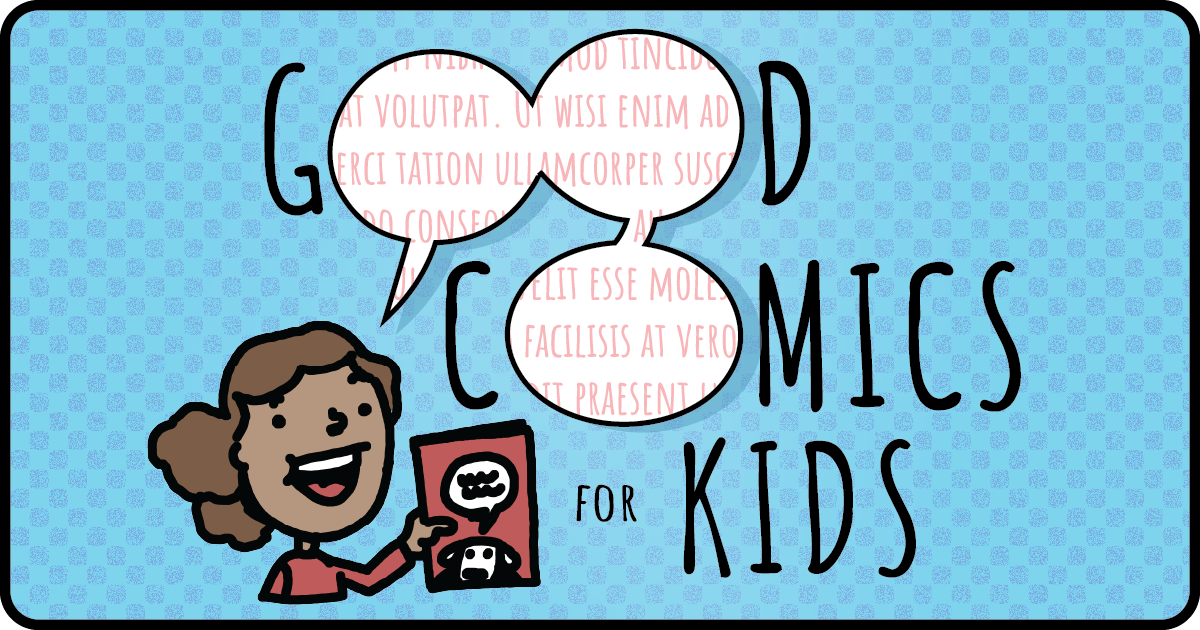

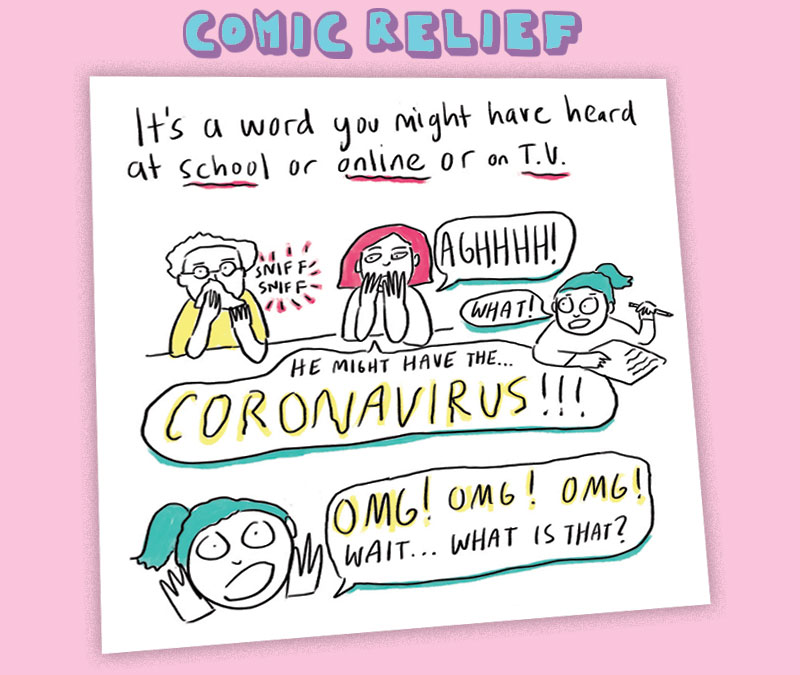
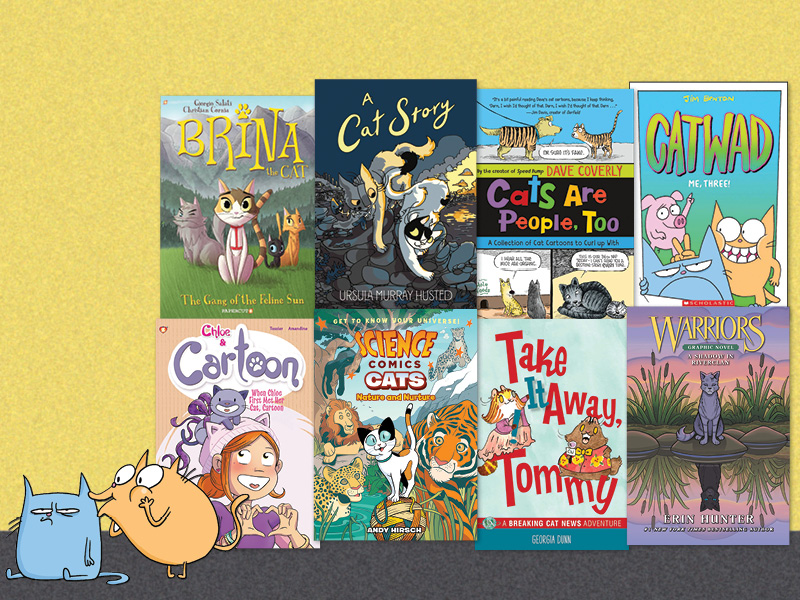
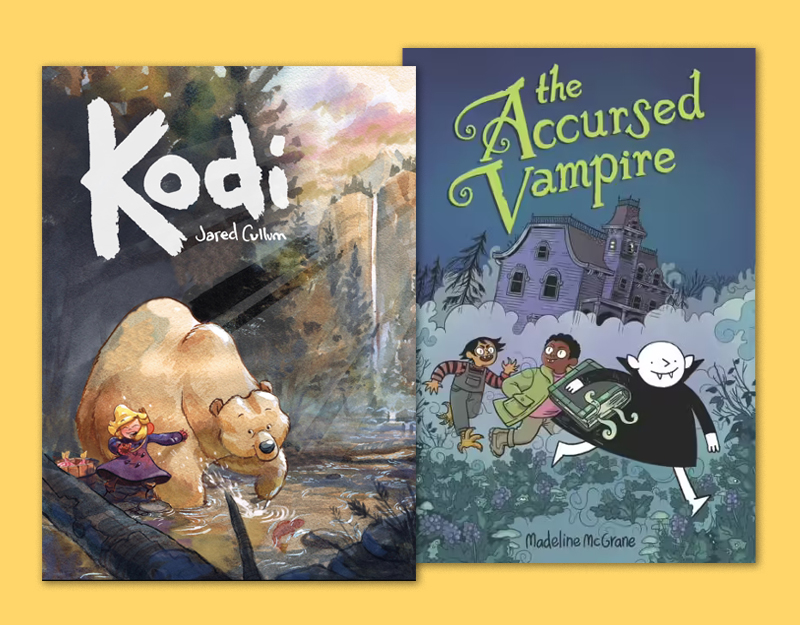

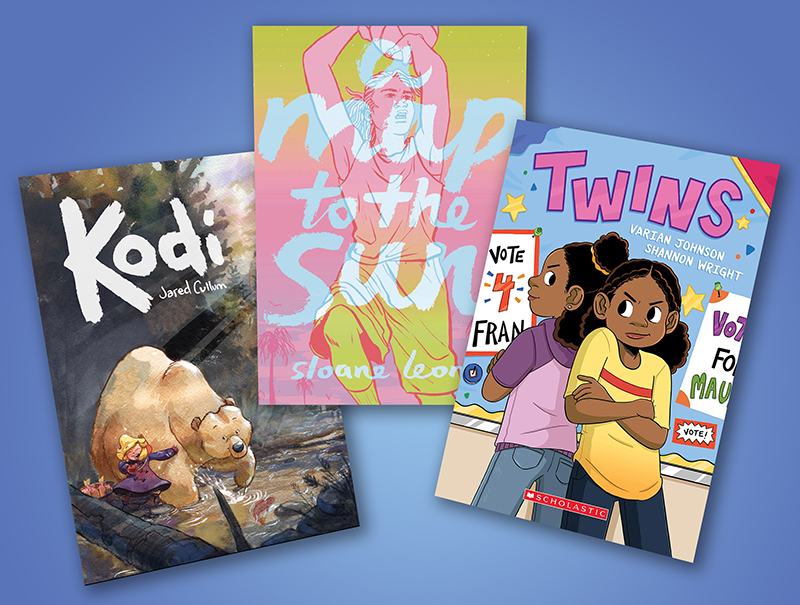
Yotsuba, All Ages for Language and Violence. oh yeah.
I know — that was a head-scratcher for me too, as “Zombie-Loan” earns an older teen rating for the same things. I find Tokyopop’s rating system a lot more transparent, if a little on the hyper-vigilant side.